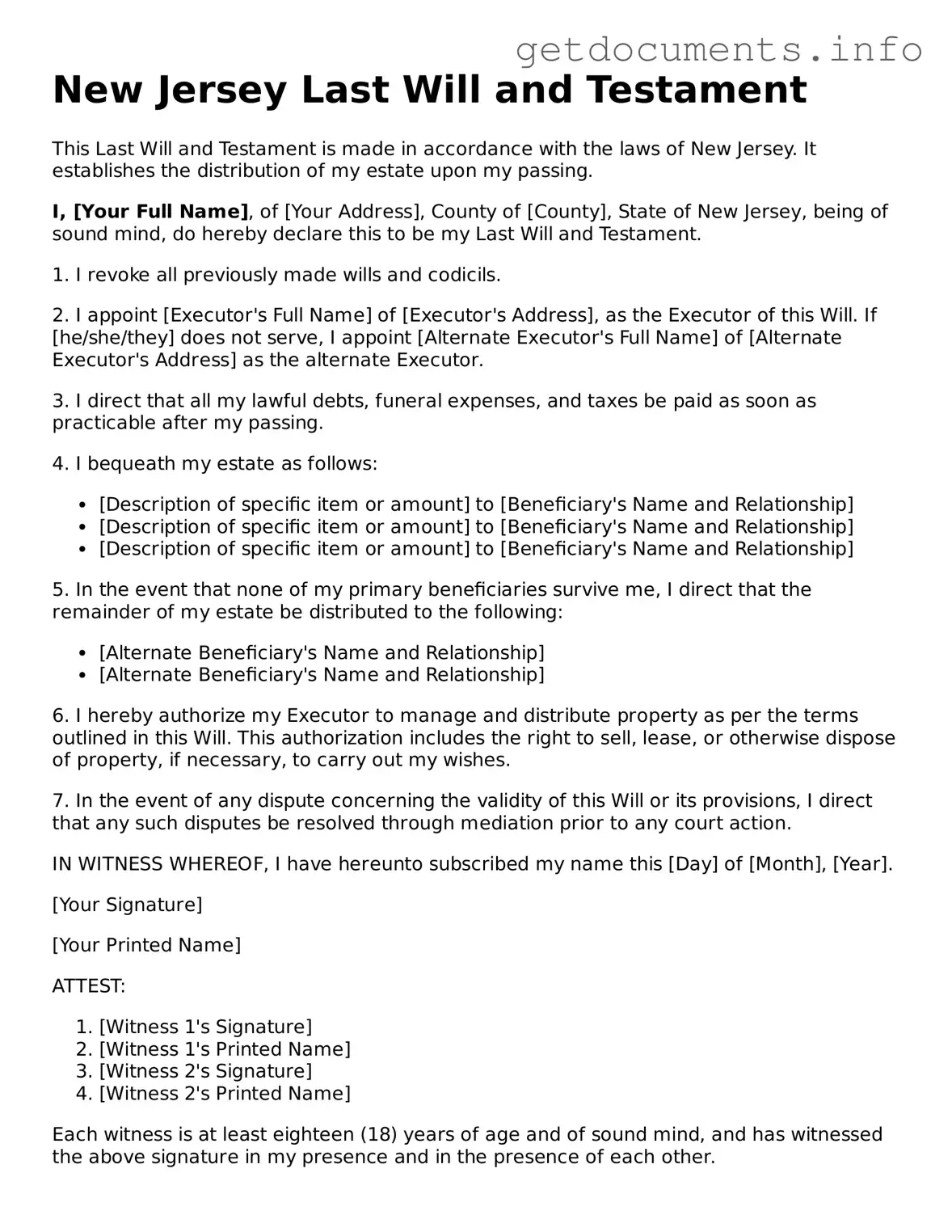When it comes to creating a Last Will and Testament in New Jersey, several misconceptions can lead to confusion. Understanding the truth behind these myths is crucial for anyone looking to ensure their wishes are honored after they pass away.
- Myth 1: A handwritten will is not valid in New Jersey.
This is not true. New Jersey does recognize handwritten wills, also known as holographic wills, as long as they meet certain criteria. However, it is generally safer to use a formal document to avoid disputes.
- Myth 2: You don’t need a will if you have a living trust.
While a living trust can manage your assets during your lifetime and after your death, it does not replace the need for a will. A will can cover any assets not included in the trust and appoint guardians for minor children.
- Myth 3: Only wealthy individuals need a will.
This is a common misconception. Regardless of your financial situation, having a will is important. It ensures that your wishes regarding your assets and dependents are respected.
- Myth 4: A will can be verbal.
In New Jersey, a will must be in writing to be considered valid. Verbal wills, or nuncupative wills, are not recognized in most cases, making a written document essential.
- Myth 5: You can write a will at any time without formalities.
While you can technically write a will at any time, New Jersey law requires specific formalities, such as having witnesses. Failing to follow these can invalidate your will.
- Myth 6: Once a will is created, it cannot be changed.
This is incorrect. You can modify or revoke your will at any time as long as you are of sound mind. It's important to keep your will updated to reflect your current wishes.
- Myth 7: A will avoids probate.
In New Jersey, having a will does not prevent your estate from going through probate. Probate is the legal process of administering a deceased person's estate, and a will is part of that process.
- Myth 8: All assets are distributed according to the will.
Not necessarily. Some assets, like life insurance policies and retirement accounts, may pass directly to beneficiaries and may not be governed by the will.
- Myth 9: You don’t need witnesses if you have a notary.
In New Jersey, a will must be signed in the presence of two witnesses. A notary public is not a substitute for witnesses, although having a notary can add an extra layer of authenticity.
Clearing up these misconceptions can help you make informed decisions about your estate planning. Understanding the requirements and implications of a Last Will and Testament is essential for ensuring that your wishes are honored.

